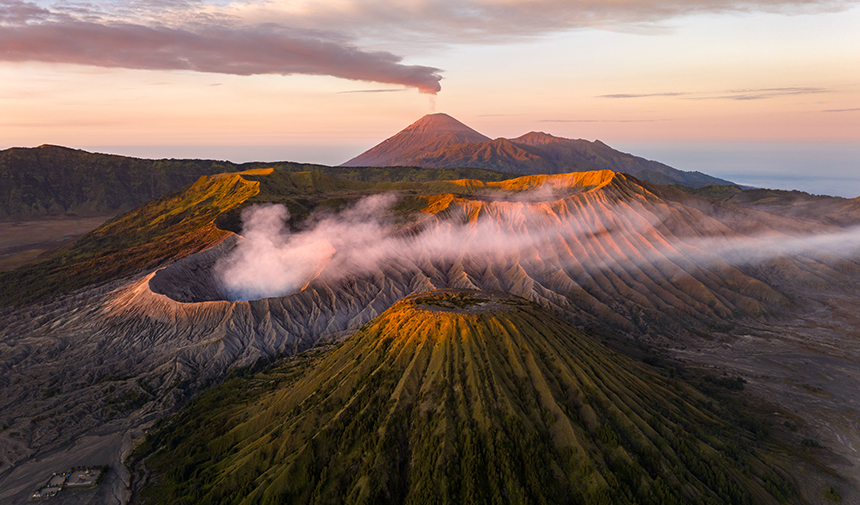Indonesia’s volcanic islands are known for their extraordinary geological formations and rich biodiversity. These volcanic islands have unique ecosystems shaped by features such as active volcanoes and hot springs. In recent years, naturalists have surprised the scientific world by discovering new species in these regions. In this article, we will discuss the new species discovered in Indonesia’s volcanic islands and their ecological and biological importance. It will also discuss the opportunities these discoveries present for scientific research and how life evolved on volcanic islands.
Volcanic Islands and Geological Riches of Indonesia
Indonesia is located on the Pacific Ring of Fire and is a country surrounded by active volcanoes. The volcanic islands are noted for their geological richness and have unique features such as lava flows, crater lakes and geothermal activity. These volcanic activities shape the soil structure and the environment of the islands, while also contributing to the formation of new ecosystems.
Volcanic islands are characterized by high mountains and steep slopes, resulting in the formation of diverse microclimates. These different microclimates are conducive to increased biodiversity and the emergence of new species. Indonesia’s volcanic islands are therefore a research-rich region for naturalists.
New species and biodiversity
In recent years, naturalists have discovered many new species on Indonesia’s volcanic islands. These species include both plants and animals and exhibit ecologically unique characteristics. The newly discovered species have often adapted to the harsh conditions of the islands and have managed to live in volcanic environments.
The new plant species reflect the diverse microclimates of volcanic islands. Some species grow on high mountain slopes and in cold climates, while others thrive in warm and humid woodlands. These plant species stabilize the soil structure and provide habitat for other living things.
New animal species also contribute to biodiversity. Small animals such as insects, reptiles and amphibians are common in volcanic environments. These animals play important roles in ecosystems and are critical components of the food chain. The newly discovered species offer scientists the opportunity to better understand natural selection and evolutionary processes.
Scientific and Ecological Significance of the Discoveries
The discovery of new species on Indonesia’s volcanic islands is of great importance for scientific research. These discoveries provide opportunities to understand how life evolves in volcanic environments and how different species adapt to these harsh conditions. In addition, new species provide further insights into genetic diversity and biological evolution.
From an ecological perspective, newly discovered species play a critical role in understanding the complex ecosystems of volcanic islands. These species help us understand how ecosystems work and how natural processes support biodiversity. They also provide important information for the sustainability of life on volcanic islands and the conservation of ecosystems.
The Future of Indonesia’s Volcanic Islands and Conservation Efforts
New species discovered on Indonesia’s volcanic islands highlight the importance of biodiversity in these regions. However, volcanic activity and anthropogenic impacts can threaten these unique ecosystems. Therefore, conservation efforts and sustainable management are critical to preserve the biodiversity of volcano islands.
Naturalists and environmentalists are developing various strategies for volcano island conservation. Creating protected areas is an effective method to protect ecosystems and support biodiversity. Furthermore, collaborating with local communities is important to ensure sustainable development and environmental awareness.
New species on Indonesia’s volcanic islands, discoveries surprise naturalists



